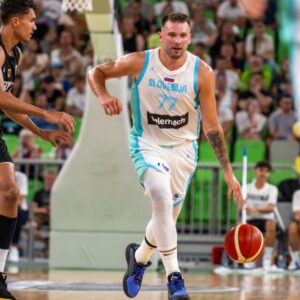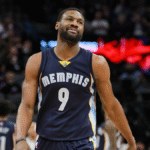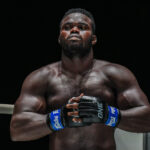EAST RUTHERFORD, N.J. – Rarely is there such a fitting moment to expound on the grandeur of sports than when two powerhouses clash in a critical contest, a scenario quite typical as competitions reach their climaxes. Paris Saint-Germain’s head coach, Luis Enrique, did just that, though his emphasis was more on creating a stir than discussing the somewhat anticipated Club World Cup face-off between his squad and Real Madrid this Wednesday.
“The most captivating aspect of coaching at this echelon is the realization, shared by my peers and myself, that today’s truths may be fleeting, perhaps holding until tomorrow but not beyond, as rivals continually evolve,” he stated during a press briefing on Tuesday.
Enrique’s sentiment rings true. A year prior, Kylian Mbappe, fresh off his World Cup triumph, was integrating into Real Madrid’s setup after a distinguished seven-year tenure with PSG, seemingly poised for the sport’s grandest accolades. However, the shift hasn’t yielded the anticipated greener pastures – Madrid remains without silverware since Mbappe’s arrival, hampered by a squad imbalance and a failure to achieve on-field harmony among Mbappe, Vinicius Junior, and Rodrygo. These setbacks do not diminish Mbappe’s prowess, nor the strategies of Carlo Ancelotti, who initially sought to forge that equilibrium.
As Xabi Alonso assumes this challenging mantle, Enrique is quick to point out that Mbappe is no longer his concern.
Kick off your day with a balanced dose of news and insights from the soccer sphere, courtesy of the Morning Footy podcast. Tune in and subscribe to Morning Footy on Apple Podcasts, Spotify or wherever you listen to your podcasts!
“I can only state that it resides in the past,” Enrique remarked, reiterating this sentiment multiple times while addressing questions concerning Mbappe. “I have nothing further to contribute on this matter.”
Enrique adopted a stance that was both courteous and transparent. Like many in his position, the PSG manager avoids protracted discussions about players from other teams. Furthermore, Mbappe’s era feels like bygone history for the French champions. Since his exit, PSG has adopted a refreshed identity, a cornerstone of their successful pursuit of the coveted trophy that eluded them before and continues to elude Mbappe: the UEFA Champions League. In recent days, Enrique and his players have engaged in a playful exchange, each attributing the success to the other — the players crediting him, and he, in turn, highlighting their contributions. All is well within the PSG camp, as France’s inaugural treble victors now stand as the team to overcome at the Club World Cup.
While PSG once seemed to prioritize accumulating stars like Mbappe, Lionel Messi, and Neymar, it is the elevation of Enrique’s system that has generated the most fruitful outcomes. Enrique’s distinctive, dynamic, and attack-focused team presents a formidable challenge from the opening whistle, initially dominating opponents on the flanks before overpowering defenses when scoring opportunities arise. This framework has unlocked the potential of world-class talents such as Khvicha Kvaratskhelia, rising stars like Joao Neves, and seasoned players awaiting their moment to shine, like Ousmane Dembele. Though Enrique is the architect of this system, he insists he is not a puppeteer, instead, he gives credit to his players.
“The beauty of PSG is that each day, I exercise less control, which carries a deeper significance than the headline you might see tomorrow: ‘Luis Enrique lacks control,'” he explained. “It is indeed accurate. The beauty lies in the fact that the less I control, the greater the likelihood that our opponents will struggle to anticipate our actions, requiring more time to adapt. When they do adapt, my task, alongside my staff, is to navigate our way out of that situation, ensuring unpredictability. That is our collective objective.”
This makes them the frontrunners against Real Madrid, an assessment that might have been difficult to foresee a year ago, when Mbappe made the switch. After five matches under Alonso’s leadership at Real Madrid, and mere weeks after his pledge to steer the team towards a more contemporary tactical approach akin to his Bayer Leverkusen side, numerous uncertainties persist.
“Firstly, analyzing this Real Madrid team is a complex undertaking,” Enrique noted. “Xabi Alonso is only beginning his tenure at Real Madrid, making it challenging to fully comprehend and assess the current state of the team. We recognize their individual strengths, but as I mentioned, they are in the initial stages under Xabi Alonso’s direction. Coaching a major team is invariably a daunting task, but I believe Xabi Alonso possesses all the necessary attributes to meet the demands of this club.”
This encompasses a new iteration of the challenge Ancelotti faced: discovering the ideal role for Mbappe. Rodrygo’s potential departure looms, and Mbappe’s participation in the Club World Cup has been limited due to a bout of gastroenteritis at the competition’s onset. Yet, Gonzalo Garcia’s emergence has further complicated matters. The previously unheralded 21-year-old has capitalized on the opportunity, amassing four goals and one assist in five appearances, likely securing a spot in Madrid’s first team for the upcoming season. While Alonso may have paired him with Vinicius out of necessity, their partnership has flourished, casting shadows on Mbappe’s prospective role in a match where he is, whether desired or not, the primary attraction.
His participation on Wednesday remains uncertain. He has logged less than an hour in the knockout stages, having missed the entirety of the group stage as he recovered from illness. Alonso indicated after their quarterfinal victory over Borussia Dortmund that Mbappe was still not at full strength. Moreover, Alonso was unable to provide an update on the French international’s condition on Tuesday, as Real Madrid’s pre-match media engagement was called off due to flight delays from their training base in the Miami suburbs to the New York metropolitan area.
The immediate question Alonso faces is whether Mbappe can integrate into the lineup, with only two matches separating them from Real Madrid’s first major trophy since the 2024 Champions League. This trophy could provide insights into how the new manager intends to resolve the long-standing question of Mbappe’s tactical fit within the team’s structure.
This constitutes one of several distinctions between Real Madrid and PSG, who headline a match that feels like a study in contrasts — not solely because one team boasts Mbappe while the other does not. PSG exudes a sense of completeness, while Real Madrid, understandably, remains a work in progress. Regardless of the circumstances of the previous year, PSG holds the upper hand on Wednesday at MetLife Stadium — barring, of course, the occurrence of the unforeseen.
“We approach this match from vastly different circumstances,” Enrique stated. “We have a coach who has been at the helm for two years, while they have a new coach. These are two entirely distinct scenarios. The beauty of football lies in its disregard for labels like favorites, underdogs, nascent projects, or projects at their zenith. Football is decided in 90 or 120 minutes, where each team must showcase their abilities. This unpredictability is what makes football so captivating. Any minor detail can shift the balance and alter the course of the game. I anticipate a thrilling match for football enthusiasts and fans of both teams alike. I believe we will witness a captivating contest.”












